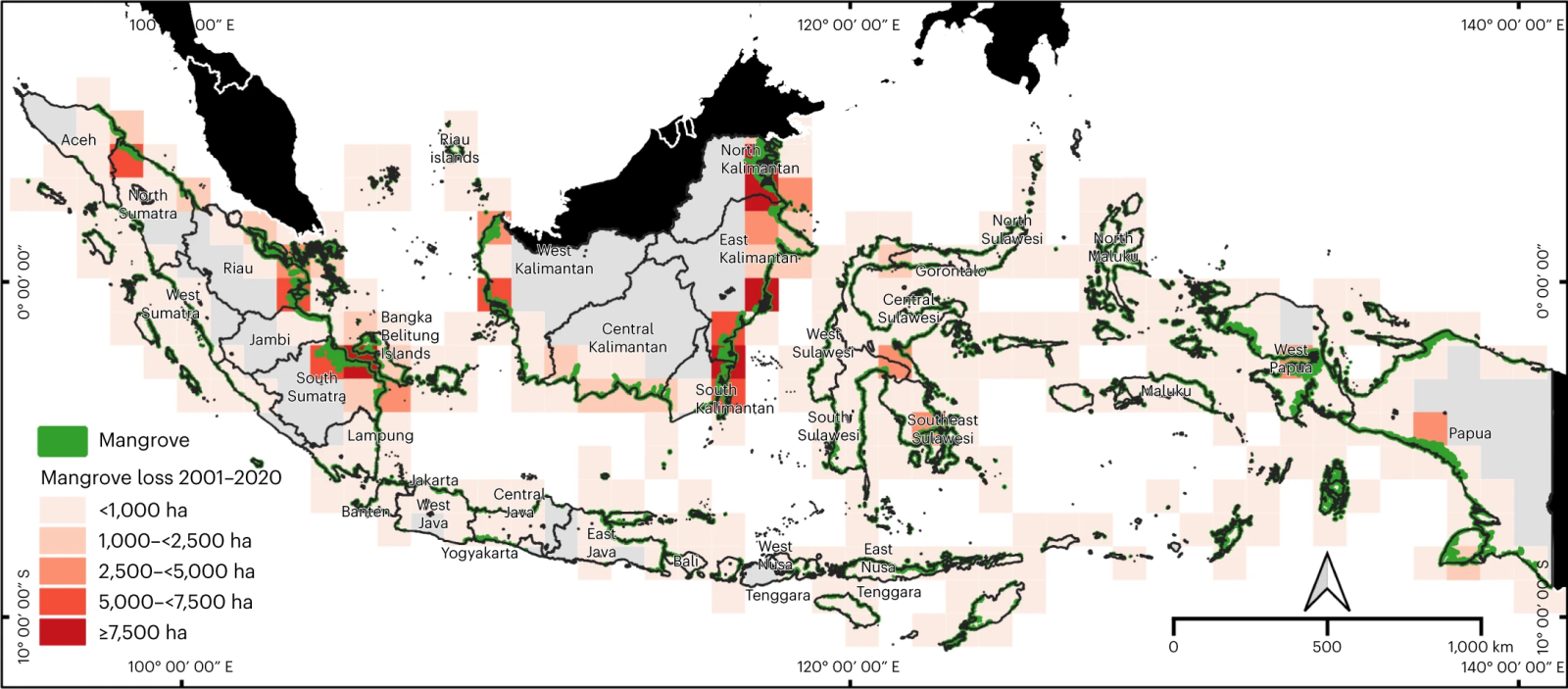January 2, 2023 | Nature Ecology & Evolution | Source |
Introduction: Indonesia, the world’s largest mangrove-rich country, has set an ambitious goal to rehabilitate 600,000 hectares of mangroves by 2024, aligning with several Sustainable Development Goals (SDGs). However, past global mangrove restoration efforts often faced challenges such as low success rates and small-scale implementation.
Key findings: This study, led by researchers from National University of Singapore and Universitas Sumatera Utara in Indonesia, identifies 193,367 hectares of land suitable for mangrove rehabilitation, roughly 30% of the national target, with estimated costs ranging from US$0.29 to 1.74 billion. Key factors considered include biogeomorphology, historical land-use data, and tenure status, which are crucial for success but often overlooked. Enhancing subnational governance, along with better monitoring and evaluation, could increase the chances of meeting Indonesia’s rehabilitation goals. Mangrove restoration could benefit 74 million coastal residents and contribute significantly to Indonesia’s climate goals by sequestering carbon and reducing land sector emissions.

Figure | Location and area of mangrove loss across Indonesia between 2001 and 2020.
Mangrove loss data at 1° grid are presented as the accumulation of loss area between 2001 and 2020. Total and annual mangrove area losses were generated by overlaying mangrove area baseline data in 2000 from ref. 1 with annual forest cover loss from ref.





